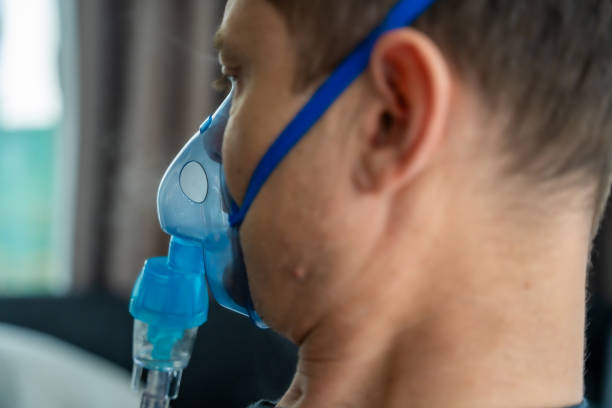A meta-trial of randomized clinical studies conducted in 6 countries suggests that the use of inhaled heparin dramatically reduced the risk of intubation, death, and in-hospital death in hospitalized COVID-19 patients.
Drug has unique set of properties
For the study, published late last week in eClinicalMedicine, researchers in Argentina, Brazil, Egypt, Indonesia, Ireland, and the United States prospectively analyzed pooled data from trials involving 478 adult COVID-19 patients who were hospitalized but didn't require mechanical ventilation.
The patients had been randomly assigned to receive either inhaled nebulized unfractionated heparin (UFH) in addition to standard care or standard care alone to prevent intubation or death or in-hospital death from June 2020 to December 2022. In total, 238 patients were in the UFH group, and 240 were controls (215 of whom received standard care, and 25 of whom were given a placebo).
The median patient age was 54 years, and most were men. The dosage, duration, and delivery method differed among study protocols, and follow-up ranged from 28 to 60 days.
Previous preclinical and clinical studies of inhaled nebulised UFH in lung injury, have shown a positive effect on pulmonary coagulation, inflammation, oxygenation and other lung injury parameters.
Just under one-third of all patients received supplemental oxygen, another 25% received high-flow nasal oxygen or non-invasive ventilation, 79% received corticosteroids, and 25% were given the antiviral drug remdesivir.
A widely available, cost-effective drug used to treat and prevent blood clots, UFH is typically injected. This formulation, which targets the lungs directly, "has a strong rationale as a treatment for severe respiratory infections, including COVID-19, due to its antiviral, anti-inflammatory, and anti-coagulant properties, which may prevent viral entry, lung injury progression, and pulmonary thrombosis," the study authors wrote.
"Previous preclinical and clinical studies of inhaled nebulised UFH in lung injury, have shown a positive effect on pulmonary coagulation, inflammation, oxygenation and other lung injury parameters," they added.
Possible application in other respiratory diseases
In-hospital death among nebulized-UFH recipients was 4.3%, compared with 14.3% in controls (odds ratio [OR], 0.26), and the hazard ratio for 28-day mortality was significantly lower in the UFH group, at 0.36.
There was no heterogeneity in treatment effect between studies, suggesting that the overall effect was consistent between studies, and no difference was observed in treatment effect between patients given supplementary oxygen at baseline and those who weren't.
An analysis using a two-stage individual patient data meta-analysis combining aggregate data confirmed significant differences between the groups in terms of intubation or death (risk ratio [RR], 0.53) or in-hospital death (RR, 0.32).



















